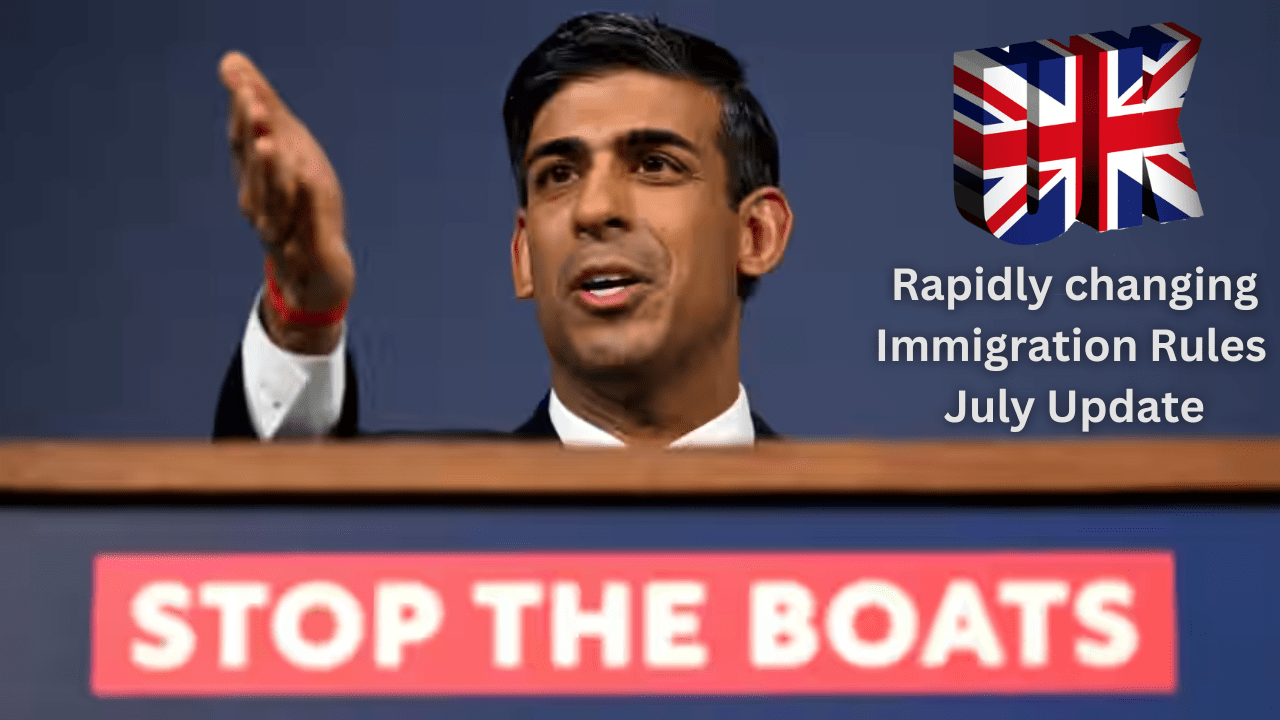
Introduction:
The UK Government has recently made significant changes to its immigration rules, focusing on visit visas, student visas, and the EU Settlement Scheme. These changes will have substantial implications for employers, students, and migrants. This article provides an in-depth overview of these changes and their potential effects on various stakeholders.
Amendments in the Student Route:
The UK government has introduced crucial changes to the student route that directly impact international students and their options to bring dependents or switch to work routes.
New Developments in Switching from Student to Work Routes:
Starting from 17th July 2023, students are allowed to switch to work routes under certain conditions, including:
- Completion of the sponsored course.
- Degree-level or higher students can switch if their Certificate of Sponsorship (CoS) shows a start date no earlier than their course completion date.
- PhD students can switch if their CoS displays a start date at least 24 months after the start of the PhD course.
These changes make it more challenging for students and their partners to switch to a work route while in the country. If students do not meet the above requirements for an in-country application, they will have to consider applying for fresh entry clearance, considering the costs and delays in becoming eligible for settlement.
Alterations in Regulations for Student Dependents:
Effective from 1 January 2024, only students pursuing a PhD, research-based higher degree, or government-sponsored students can bring dependents. This change will not affect students whose courses start before this date, meaning taught Masters students will no longer be eligible to bring dependents.
Timeline of Changes:
Unlike the usual grace period of at least 21 days before implementation, these amendments took immediate effect to prevent a surge of applications. The government believes that the announcement made on 23 May 2023 provided sufficient advance warning.
Changes in the EU Settlement Scheme (EUSS):
The EU Settlement Scheme has also undergone significant changes affecting EU, EEA, and Swiss citizens residing in the UK.
Automatic Extension of Pre-settled Status:
Starting from 9 August 2023, the pre-settled status of an individual may be extended automatically, irrespective of whether they have made a valid application to the Home Office. This change is a result of implementing the findings of a successful legal challenge by the Independent Monitoring Authority. Additionally, the Home Office intends to put a process in place to automatically convert pre-settled status holders to settled status if they are eligible.
Evaluation of Late Application Justifications:
Under the new rules, the assessment of whether an individual has reasonable grounds for making a late application to the EUSS will be a requirement for application validity, rather than eligibility.
Modifications in the Skilled Worker Route:
Several changes have been introduced in the skilled worker route, including additions to the shortage occupation list and longer immigration permission for GPs undergoing specialty training.
Updates to the Shortage Occupation List (SOL):
Effective from 7 August 2023, several construction and fishing industry occupations have been added to the SOL. Workers applying under these occupational codes will benefit from lower visa fees and salary thresholds.
Extended Immigration Permission for GPs in Specialty Training:
GPs in specialty training will now be granted immigration permission that expires four months after the end date of their Certificate of Sponsorship. This extension will allow them time to obtain further immigration permission as a GP with a licensed sponsor.
Implications for Sponsor Licence Holders:
With these changes, sponsor licence holders need to be more vigilant and consider the stage at which potential student applicants are in their study. They must ensure that their business activities comply with all rules and compliance obligations.
Effects on Recruiting Foreigners:
The recent immigration changes may impact the recruitment strategies of businesses. If an existing employee has an EUSS application assessed as invalid, they may need to apply for alternative immigration permission or leave the UK, potentially affecting the workforce.
Impact on Visa Nationals:
The new rules may also affect visa nationals holding pre-settled status as family members of an EEA/Swiss national. They may need to apply for a new physical Biometric Residence Card to prove their immigration permission when traveling to the UK.
Implications for Industries Facing Skills Shortages:
The additions to the SOL are a positive development for industries facing skills shortages, including construction and fishing. Foreign nationals applying under the newly added occupational codes will find the process more cost-effective and accessible.
Additional Changes:
The UK Government has also introduced changes to other immigration routes, such as the Ukraine Extension Scheme and the Private Life routes. Additionally, it has launched a new Diplomatic Missions Interns Scheme for the Government Authorized Exchange route.
Conclusion:
While some changes to the UK immigration rules aim to reduce net immigration, the inclusion of certain occupations on the shortage occupation list in specific industries may have the opposite effect and increase immigration. It is crucial for employers, sponsors, visa nationals, and migrants to understand these changes to ensure compliance and make informed decisions.
